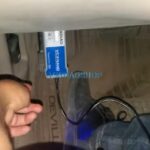Yes, DTS Monaco is a powerful diagnostic tool that supports diagnostics for Daimler Trucks, including Actros and Freightliner models, especially when paired with the correct truck databases or files; DTS-MONACO.EDU.VN offers comprehensive information and training to help you master this software. This ensures accurate diagnostics, efficient troubleshooting, and advanced car coding, ultimately optimizing fleet performance and reducing downtime. Discover car diagnostic tools, automotive software solutions and ECU programming.
Contents
- 1. What is DTS Monaco and How Does It Work?
- 1.1. Key Features of DTS Monaco
- 1.2. Software and Hardware Requirements
- 1.3. Differences Between DTS Monaco and Vediamo
- 2. Which Daimler Trucks Are Supported by DTS Monaco?
- 2.1. Actros Series
- 2.2. Freightliner Series
- 2.3. Other Daimler Trucks
- 2.4. Model-Specific Requirements
- 3. Where Can You Find the Truck Databases/Files?
- 3.1. Official Daimler Sources
- 3.2. Third-Party Providers
- 3.3. Online Forums and Communities
- 3.4. DTS-MONACO.EDU.VN Resources
- 4. How to Ensure Compatibility and Proper Functionality
- 4.1. Verify Software Version
- 4.2. Check Database Compatibility
- 4.3. Use a Reliable Hardware Interface
- 4.4. Follow Proper Procedures
- 4.5. Regular Software Updates
- 4.6. Seek Expert Advice
- 4.7. Test in a Controlled Environment
- 5. Step-by-Step Guide to Diagnosing Daimler Trucks with DTS Monaco
- 5.1. Connect to the Vehicle
- 5.2. Launch DTS Monaco
- 5.3. Perform a Quick Test
- 5.4. Read Fault Codes
- 5.5. Analyze Data
- 5.6. Perform Guided Diagnostics
- 5.7. Troubleshoot
- 5.8. Clear Fault Codes
- 5.9. Verify Repairs
- 6. Common Issues and Solutions When Diagnosing Daimler Trucks
- 7. How to Perform Car Coding on Daimler Trucks with DTS Monaco
- 7.1. Backup Original Settings
- 7.2. Access Car Coding Functions
- 7.3. Modify Parameters
- 7.4. Apply Changes
- 7.5. Test New Settings
- 7.6. Document Changes
- 8. Benefits of Using DTS Monaco for Daimler Truck Diagnostics
- 8.1. Comprehensive Diagnostics
- 8.2. Advanced Car Coding
- 8.3. ECU Programming
- 8.4. Time Savings
- 8.5. Cost-Effectiveness
- 8.6. Enhanced Performance
- 8.7. Offline Operations
- 8.8. Data Analysis
- 9. Latest Updates and Technologies in Daimler Truck Diagnostics
- 10. Training and Certification for DTS Monaco
- 10.1. Official Daimler Training Programs
- 10.2. Third-Party Training Providers
- 10.3. Online Courses
- 10.4. Certification Programs
- 10.5. DTS-MONACO.EDU.VN Training
- 10.6. Hands-On Experience
- FAQ About DTS Monaco and Daimler Trucks
- 1. Is DTS Monaco difficult to learn?
- 2. Can I use DTS Monaco for online car coding?
- 3. What is the difference between DTS Monaco and Xentry?
- 4. Do I need a special interface to use DTS Monaco?
- 5. Can I use DTS Monaco on multiple computers?
- 6. How often should I update DTS Monaco?
- 7. Where can I find the latest DTS Monaco software?
- 8. Is DTS Monaco compatible with all Daimler Truck models?
- 9. Can I use DTS Monaco to increase engine power?
- 10. What are the risks of using DTS Monaco incorrectly?
1. What is DTS Monaco and How Does It Work?
DTS Monaco, or Daimler Test System Monaco, is the official engineering software used by Daimler Benz for vehicle diagnostics, programming, and car coding. It is designed for comprehensive vehicle analysis and modification, offering functionalities far beyond basic diagnostics.
- Comprehensive Diagnostics: DTS Monaco can perform quick tests of all electronic control units (ECUs) in a vehicle. This allows technicians to quickly identify issues across the entire vehicle system.
- ECU Programming: The software facilitates ECU flashing, allowing technicians to update or modify the software on individual control units. This is essential for applying software updates, calibrations, and other enhancements.
- Variant Coding: DTS Monaco supports variant coding, enabling technicians to modify vehicle settings and parameters to match specific configurations or customer preferences. This includes adding or deleting vehicle options (VO coding).
- Data Exchange: The tool allows for seamless data exchange between the diagnostic system and the vehicle’s ECUs, ensuring accurate and reliable communication.
- Troubleshooting: DTS Monaco offers advanced features for troubleshooting complex issues, including symbolic tracing, which records and tracks data to analyze fault logic.
- Offline Operations: Many functions can be performed offline, providing flexibility and convenience for technicians working in various environments.
1.1. Key Features of DTS Monaco
DTS Monaco offers many advanced features that make it a powerful tool for automotive diagnostics and car coding. Here’s a more detailed look:
| Feature | Description |
|---|---|
| Quick Test | Performs a comprehensive scan of all ECUs in the vehicle, identifying any faults or issues. |
| Variant Coding | Allows technicians to modify vehicle settings and parameters to match specific configurations. |
| ID Identification | Reads and saves all programmed numbers from the vehicle’s modules, providing a complete overview of the vehicle’s software configuration. |
| Complete Variant Coding | Reads all ECU coding data and allows it to be written back to the vehicle, enabling complete offline operation. |
| Diagnostic Services | Offers advanced features for accessing internal and external data modules, activating ECUs, resetting ECUs, and modifying the original chassis number. |
| Flash Programming | Provides full offline programming capabilities, allowing technicians to update or modify ECU software without an internet connection. |
| Diagnostic Trouble Codes | Reads diagnostic trouble codes (DTCs) from the vehicle’s modules, helping technicians identify and resolve issues. |
| ECU Exchange | Allows for data exchange between two identical ECUs, facilitating the replacement of faulty units. |
| Symbolic Trace | Records and tracks data to analyze fault logic, aiding in troubleshooting complex issues. |
1.2. Software and Hardware Requirements
To effectively use DTS Monaco for Daimler Trucks, you’ll need specific software and hardware components. Ensuring you have the right tools is crucial for accurate diagnostics and efficient car coding.
- Software Version: The specific version of DTS Monaco you need may vary depending on the truck models you’re working with. It’s crucial to use a compatible version to ensure all diagnostic and programming functions work correctly. DTS-MONACO.EDU.VN stays updated with the latest software versions and compatibility information.
- Diagnostic Software: You’ll also need diagnostic software like Xentry or DAS (Diagnostic Assistance System) for initial vehicle diagnostics. These programs work in conjunction with DTS Monaco to provide comprehensive diagnostic coverage.
- Hardware Interface: A hardware interface like the MB SD Connect C4 or C5 is essential for connecting your computer to the truck’s diagnostic port. These interfaces support various communication protocols, including CAN bus, K-line, and DOIP (Diagnostics over Internet Protocol).
- Truck Databases/Files: Each Daimler Truck model requires specific databases and files for accurate diagnostics and car coding. These files contain information about the truck’s ECUs, parameters, and diagnostic procedures.
- Laptop/PC: A robust laptop or PC is necessary to run the software and manage the data. Ensure it meets the minimum system requirements for DTS Monaco and related diagnostic software.
- Internet Connection: While many functions can be performed offline, an internet connection is required for software updates, online car coding, and accessing online resources.
1.3. Differences Between DTS Monaco and Vediamo
DTS Monaco and Vediamo are both engineering software tools used for Mercedes-Benz vehicles, but they serve different purposes and have distinct capabilities. Here’s a comparison:
| Feature | DTS Monaco | Vediamo |
|---|---|---|
| Primary Use | Comprehensive diagnostics, ECU programming, and car coding | Primarily for ECU flashing and parameter adjustments |
| User Interface | More user-friendly and intuitive | Less user-friendly, requires more technical expertise |
| Automation | High level of automation, can automatically set code and perform programming tasks | Requires manual configuration for many tasks |
| Data Handling | Can read and save entire vehicle data with a single click | Requires manual reading and saving of individual module data |
| Offline Capability | Designed for extensive offline operations, including car coding | Supports offline programming, but some advanced features may require online access |
| Security Access | Requires higher-level access for advanced functions | Lower security access compared to DTS Monaco |
| Best For | Technicians needing a comprehensive tool for diagnostics, programming, and car coding | Engineers and specialists focusing on ECU modifications and advanced parameter adjustments |
| Entire vehicle setting code one-click save | Yes | No |
| Entire vehicle control unit software number one-click save | Yes | No |
| Read entire vehicle fault code | Yes | No |
| Data exchange | Yes | No |
| Quick test | Yes | No |
| Single control unit one-click setting code offline | Yes | No |
2. Which Daimler Trucks Are Supported by DTS Monaco?
DTS Monaco supports a wide range of Daimler Trucks, including the Actros, Freightliner, and other models. However, the level of support and functionality can depend on the specific truck model and the availability of the necessary databases and files.
2.1. Actros Series
The Actros series is a line of heavy-duty trucks designed for long-haul transportation. DTS Monaco can be used for:
- Actros 963/4: Diagnostics, ECU programming, and car coding.
- Actros 2/3: Comprehensive diagnostics and modifications.
- New Actros: Advanced diagnostics, ECU flashing, and parameter adjustments.
2.2. Freightliner Series
Freightliner trucks are popular in North America and used for various applications, including long-haul and vocational tasks. DTS Monaco can support:
- Cascadia: Diagnostics, ECU programming, and car coding for newer models.
- M2 Series: Diagnostics and parameter adjustments.
- Other Freightliner Models: Depending on the specific model and year, DTS Monaco can offer varying levels of diagnostic and programming support.
2.3. Other Daimler Trucks
DTS Monaco also supports other Daimler Trucks, including:
- Atego: Comprehensive diagnostics and ECU programming.
- Axor: Diagnostics and parameter adjustments.
- Econic: Diagnostics and modifications for specialized applications.
- Zetros: Diagnostics and ECU flashing for off-road and heavy-duty tasks.
2.4. Model-Specific Requirements
It’s essential to verify the availability of specific databases and files for your truck model. This information ensures that DTS Monaco can accurately diagnose and program the vehicle’s ECUs. Contacting DTS-MONACO.EDU.VN can provide valuable insights into model-specific requirements.
3. Where Can You Find the Truck Databases/Files?
Finding the correct truck databases and files is crucial for using DTS Monaco effectively. These files contain the necessary data for diagnosing and programming specific Daimler Truck models.
3.1. Official Daimler Sources
The most reliable source for truck databases and files is official Daimler channels. These may include:
- Daimler AG: Official Daimler websites or portals that provide access to software updates and databases.
- Authorized Dealers: Contacting authorized Daimler truck dealers can provide access to the necessary files and software.
- Subscription Services: Daimler may offer subscription services that provide access to the latest databases and software updates.
3.2. Third-Party Providers
Several third-party providers specialize in automotive diagnostic software and databases. These providers may offer truck databases for DTS Monaco. However, it’s essential to ensure the provider is reputable and the files are accurate and up-to-date.
3.3. Online Forums and Communities
Online forums and communities dedicated to automotive diagnostics and car coding can be valuable resources for finding truck databases and files. However, exercise caution when downloading files from these sources, as they may not be verified or guaranteed to be accurate.
3.4. DTS-MONACO.EDU.VN Resources
DTS-MONACO.EDU.VN offers resources and guidance on finding the correct truck databases and files for DTS Monaco. They can provide recommendations and support to ensure you have the necessary files for your specific truck model.
4. How to Ensure Compatibility and Proper Functionality
Ensuring compatibility and proper functionality when using DTS Monaco with Daimler Trucks is essential for accurate diagnostics and car coding. Follow these steps to maximize your success:
4.1. Verify Software Version
Make sure you are using a compatible version of DTS Monaco for the Daimler Truck model you are working with. Check the software documentation or contact DTS-MONACO.EDU.VN for compatibility information.
4.2. Check Database Compatibility
Verify that the truck databases and files you are using are specifically designed for the truck model and year. Using incorrect or outdated files can lead to inaccurate diagnostics or programming errors.
4.3. Use a Reliable Hardware Interface
Employ a reliable hardware interface, such as the MB SD Connect C4 or C5, to connect your computer to the truck’s diagnostic port. Ensure the interface supports the necessary communication protocols for the truck model.
4.4. Follow Proper Procedures
Adhere to the proper diagnostic and programming procedures outlined in the DTS Monaco documentation. Following the correct steps is crucial for avoiding errors and ensuring successful operations.
4.5. Regular Software Updates
Keep your DTS Monaco software and truck databases up to date with the latest versions. Software updates often include bug fixes, improved functionality, and support for newer truck models.
4.6. Seek Expert Advice
If you encounter any issues or have questions about using DTS Monaco with Daimler Trucks, seek advice from experienced technicians or experts at DTS-MONACO.EDU.VN. They can provide valuable insights and troubleshooting assistance.
4.7. Test in a Controlled Environment
Before making any permanent changes to the truck’s ECUs, test your diagnostic and programming procedures in a controlled environment. This can help you identify and resolve any potential issues before they impact the vehicle’s performance.
5. Step-by-Step Guide to Diagnosing Daimler Trucks with DTS Monaco
Diagnosing Daimler Trucks with DTS Monaco involves a systematic approach to ensure accuracy and efficiency. Here’s a step-by-step guide to help you through the process:
5.1. Connect to the Vehicle
- Connect the MB SD Connect C4/C5 interface to the truck’s diagnostic port (usually located under the dashboard).
- Connect the interface to your computer via LAN cable or Wi-Fi.
- Ensure the truck’s ignition is turned on.
5.2. Launch DTS Monaco
- Open the DTS Monaco software on your computer.
- Select the appropriate vehicle profile for the Daimler Truck model you are diagnosing.
5.3. Perform a Quick Test
- In DTS Monaco, select the “Quick Test” function.
- Allow the software to scan all the ECUs in the truck. This process may take several minutes.
- Review the results of the quick test, noting any fault codes or issues identified.
5.4. Read Fault Codes
- For each ECU with reported faults, select the “Diagnostic Trouble Codes” function.
- Read and record the specific fault codes for each module.
- Use the fault code descriptions to understand the nature of the problem.
5.5. Analyze Data
- Use DTS Monaco to access live data from the truck’s sensors and systems.
- Analyze the data to identify any anomalies or deviations from expected values.
- Compare the data with technical specifications to pinpoint potential issues.
5.6. Perform Guided Diagnostics
- Use the guided diagnostics features in DTS Monaco to perform specific tests and procedures related to the identified fault codes.
- Follow the on-screen instructions and prompts to execute the tests correctly.
- Record the results of each test and use them to further diagnose the problem.
5.7. Troubleshoot
- Based on the diagnostic information, develop a troubleshooting plan.
- Check wiring, connections, and components related to the affected systems.
- Use DTS Monaco to activate components and observe their operation.
5.8. Clear Fault Codes
- After resolving the issues, use DTS Monaco to clear the fault codes from the ECUs.
- Perform another quick test to confirm that all fault codes have been cleared.
5.9. Verify Repairs
- Test drive the truck to verify that the repairs have been successful.
- Monitor the truck’s performance and data to ensure the issues do not reappear.
6. Common Issues and Solutions When Diagnosing Daimler Trucks
Diagnosing Daimler Trucks with DTS Monaco can sometimes present challenges. Here are some common issues and their potential solutions:
| Issue | Possible Causes | Solutions |
|---|---|---|
| Communication Errors | Incorrect interface settings, faulty cable, or incompatible software | Verify interface settings, check cable connections, update software, or use a different interface. |
| Inaccurate Fault Codes | Outdated databases, incorrect vehicle profile, or faulty ECU | Update databases, select the correct vehicle profile, or test the ECU with another diagnostic tool. |
| Programming Errors | Incorrect programming procedures, power interruptions, or incompatible files | Follow correct procedures, ensure a stable power supply, use compatible files, or seek expert assistance. |
| Missing Functions | Incomplete software installation, missing licenses, or unsupported truck model | Verify software installation, activate licenses, or confirm compatibility with the truck model. |
| Software Crashes | System conflicts, corrupted files, or insufficient system resources | Close unnecessary programs, reinstall software, check system requirements, or perform a clean installation of the operating system. |
| Difficulty Finding Correct Database Files | Lack of clear documentation, unverified sources, or incorrect search terms | Consult official Daimler sources, use reputable third-party providers, verify file integrity, or contact DTS-MONACO.EDU.VN for assistance. |
7. How to Perform Car Coding on Daimler Trucks with DTS Monaco
Car coding on Daimler Trucks with DTS Monaco allows you to customize vehicle settings, enable new features, and optimize performance. Here’s how to do it:
7.1. Backup Original Settings
Before making any changes, back up the original settings of the ECU you are coding. This ensures you can revert to the original configuration if needed.
7.2. Access Car Coding Functions
- In DTS Monaco, navigate to the ECU you want to code.
- Select the “Variant Coding” or “Manual Coding” function.
7.3. Modify Parameters
- Identify the parameters you want to change.
- Enter the new values for the parameters.
- Double-check the values to ensure they are correct.
7.4. Apply Changes
- Apply the changes to the ECU.
- Wait for the coding process to complete.
- Do not interrupt the process to avoid errors.
7.5. Test New Settings
- Test the new settings to ensure they function correctly.
- Monitor the vehicle’s performance and behavior.
- Make any necessary adjustments.
7.6. Document Changes
- Document all the changes you have made.
- Keep a record of the original and new settings.
- This helps with future troubleshooting and maintenance.
8. Benefits of Using DTS Monaco for Daimler Truck Diagnostics
Using DTS Monaco for Daimler Truck diagnostics offers numerous benefits that can improve your efficiency, accuracy, and overall performance:
8.1. Comprehensive Diagnostics
DTS Monaco offers comprehensive diagnostic capabilities, allowing you to quickly and accurately identify issues across all of the truck’s systems.
8.2. Advanced Car Coding
The software’s advanced car coding features enable you to customize vehicle settings and enable new features, optimizing the truck’s performance and functionality.
8.3. ECU Programming
DTS Monaco facilitates ECU programming, allowing you to update or modify the software on individual control units, ensuring the truck is running the latest software versions.
8.4. Time Savings
The software’s automation features and intuitive interface can save you time and effort when diagnosing and repairing Daimler Trucks.
8.5. Cost-Effectiveness
By accurately diagnosing and resolving issues, DTS Monaco can help you reduce downtime and minimize repair costs.
8.6. Enhanced Performance
Optimizing vehicle settings and parameters with DTS Monaco can enhance the truck’s performance, fuel efficiency, and overall reliability.
8.7. Offline Operations
Many functions can be performed offline, providing flexibility and convenience for technicians working in various environments.
8.8. Data Analysis
DTS Monaco allows for in-depth data analysis, enabling you to identify patterns and trends that can help you diagnose and prevent future issues.
9. Latest Updates and Technologies in Daimler Truck Diagnostics
Staying up-to-date with the latest updates and technologies in Daimler Truck diagnostics is crucial for maintaining peak performance and efficiency. Here are some key developments:
| Update/Technology | Description | Benefits |
|---|---|---|
| DOIP (Diagnostics over IP) | A modern diagnostic protocol that uses Ethernet for communication, enabling faster data transfer and enhanced diagnostic capabilities. | Faster diagnostics, improved data handling, and support for advanced features. |
| Over-the-Air (OTA) Updates | The ability to update vehicle software and firmware wirelessly, without requiring a physical connection. | Convenient updates, reduced downtime, and access to the latest features and improvements. |
| Predictive Diagnostics | Using data analytics and machine learning to predict potential issues before they occur, enabling proactive maintenance and repairs. | Reduced downtime, improved reliability, and optimized maintenance schedules. |
| Enhanced Cybersecurity Measures | Advanced security protocols to protect vehicle systems from cyber threats and unauthorized access. | Protection against hacking, data breaches, and unauthorized modifications. |
| Remote Diagnostics | The ability to diagnose and troubleshoot vehicle issues remotely, using telematics and diagnostic tools. | Reduced downtime, faster response times, and the ability to diagnose issues from anywhere in the world. |
| Integration with Mobile Devices | Diagnostic apps and tools that can be used on smartphones and tablets, providing technicians with access to vehicle data and diagnostic functions on the go. | Increased convenience, improved efficiency, and access to diagnostic information in real-time. |
| Advanced Driver-Assistance Systems (ADAS) | Diagnostics and calibration tools for ADAS features such as lane departure warning, adaptive cruise control, and automatic emergency braking. | Ensuring ADAS features function correctly, improving safety, and preventing accidents. |
10. Training and Certification for DTS Monaco
Proper training and certification are essential for effectively using DTS Monaco and performing accurate diagnostics and car coding on Daimler Trucks. Here’s how you can get trained and certified:
10.1. Official Daimler Training Programs
Daimler offers official training programs for technicians who work on their vehicles. These programs provide in-depth knowledge of Daimler diagnostic tools, including DTS Monaco, and cover various topics such as diagnostics, car coding, and ECU programming.
10.2. Third-Party Training Providers
Several third-party training providers specialize in automotive diagnostics and car coding. These providers may offer training courses on DTS Monaco, covering its features, functions, and applications for Daimler Trucks.
10.3. Online Courses
Online courses are a convenient way to learn about DTS Monaco and Daimler Truck diagnostics. Platforms like Udemy, Coursera, and Skillshare offer courses on various automotive diagnostic topics, including DTS Monaco.
10.4. Certification Programs
Consider pursuing certification programs offered by Daimler or third-party organizations. Certification can demonstrate your expertise and competence in using DTS Monaco and performing Daimler Truck diagnostics.
10.5. DTS-MONACO.EDU.VN Training
DTS-MONACO.EDU.VN offers specialized training courses and resources for mastering DTS Monaco. Their expert instructors provide hands-on training and guidance to help you become proficient in using the software for Daimler Truck diagnostics and car coding.
10.6. Hands-On Experience
The best way to learn DTS Monaco is through hands-on experience. Work with experienced technicians, practice on real vehicles, and apply what you have learned in a real-world setting.
FAQ About DTS Monaco and Daimler Trucks
Here are some frequently asked questions about using DTS Monaco with Daimler Trucks:
1. Is DTS Monaco difficult to learn?
DTS Monaco can be challenging to learn initially due to its advanced features and complex interface. However, with proper training and practice, you can become proficient in using the software.
2. Can I use DTS Monaco for online car coding?
Yes, DTS Monaco supports online car coding, but you’ll need an active account and access to Daimler’s online servers.
3. What is the difference between DTS Monaco and Xentry?
DTS Monaco is an engineering software used for advanced diagnostics, car coding, and ECU programming. Xentry is a diagnostic software used for diagnosing and troubleshooting issues in Mercedes-Benz vehicles.
4. Do I need a special interface to use DTS Monaco?
Yes, you’ll need a hardware interface like the MB SD Connect C4 or C5 to connect your computer to the truck’s diagnostic port.
5. Can I use DTS Monaco on multiple computers?
DTS Monaco licenses are typically tied to a specific computer, so you may need to purchase additional licenses to use the software on multiple computers.
6. How often should I update DTS Monaco?
You should update DTS Monaco regularly to ensure you have the latest features, bug fixes, and support for newer truck models.
7. Where can I find the latest DTS Monaco software?
You can find the latest DTS Monaco software on official Daimler websites, third-party providers, or through DTS-MONACO.EDU.VN.
8. Is DTS Monaco compatible with all Daimler Truck models?
DTS Monaco is compatible with a wide range of Daimler Truck models, but compatibility may vary depending on the specific model and year.
9. Can I use DTS Monaco to increase engine power?
Yes, DTS Monaco can be used to modify engine parameters and increase power, but it’s essential to do so responsibly and within legal limits.
10. What are the risks of using DTS Monaco incorrectly?
Using DTS Monaco incorrectly can lead to programming errors, ECU damage, and vehicle malfunctions. It’s crucial to follow proper procedures and seek expert assistance when needed.
Are you ready to unlock the full potential of your Daimler Trucks? Visit DTS-MONACO.EDU.VN today to explore our comprehensive DTS Monaco training courses and resources, and take your diagnostic skills to the next level. Contact us at Address: 275 N Harrison St, Chandler, AZ 85225, United States or Whatsapp: +1 (641) 206-8880 to learn more.
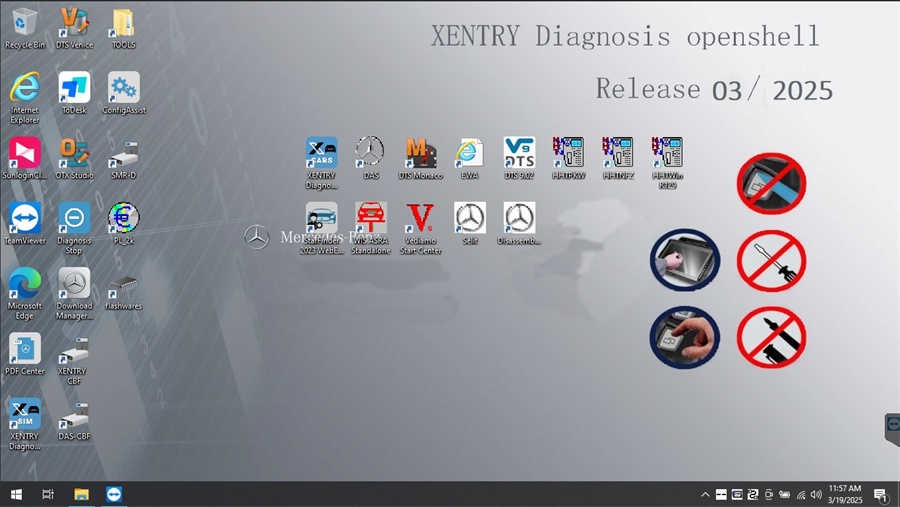 DTS Monaco Software Display
DTS Monaco Software Display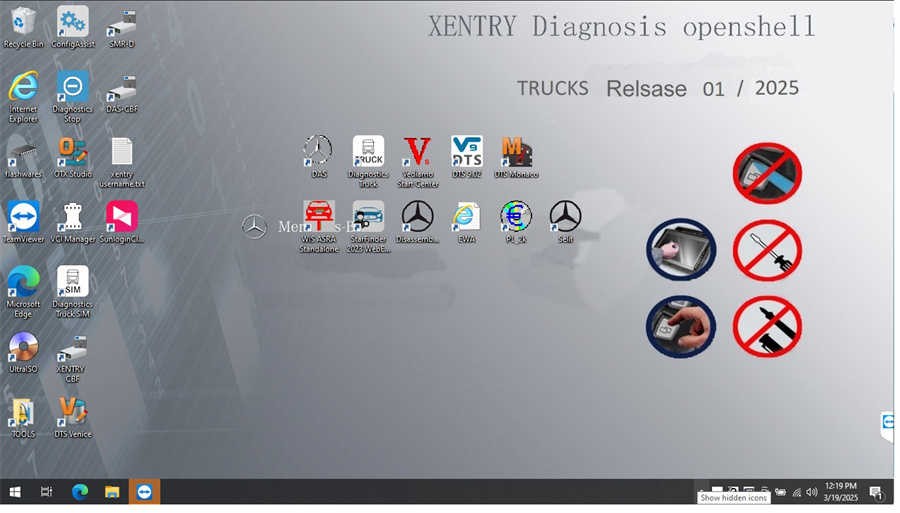 DTS Monaco Vehicle Diagnostic Interface
DTS Monaco Vehicle Diagnostic Interface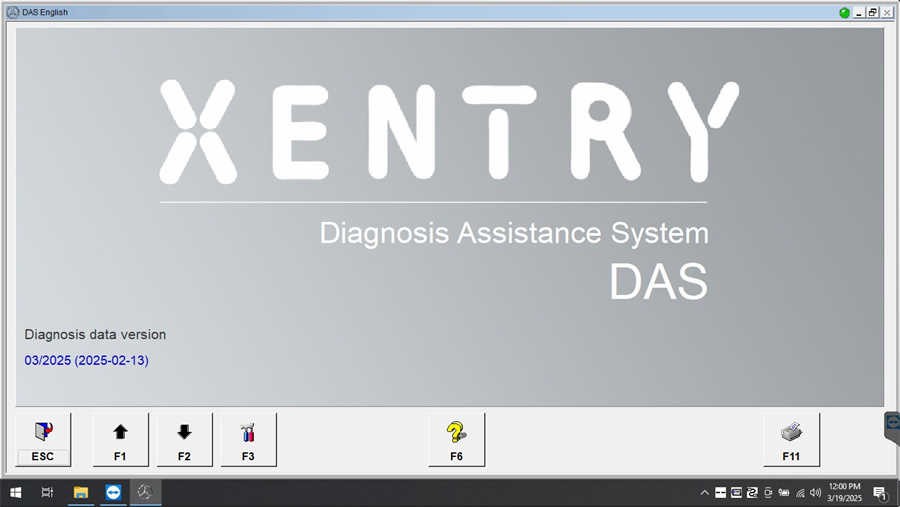 DTS Monaco Truck Selection Menu
DTS Monaco Truck Selection Menu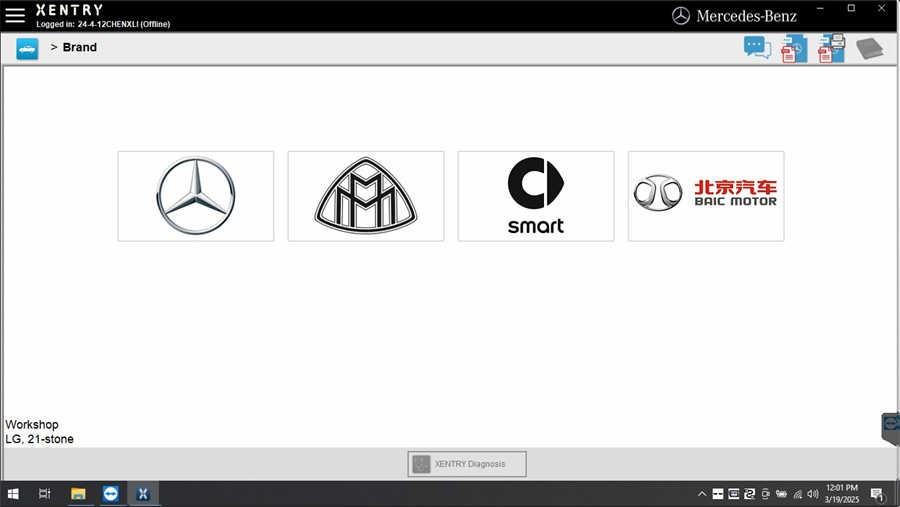 DTS Monaco Fault Code Display
DTS Monaco Fault Code Display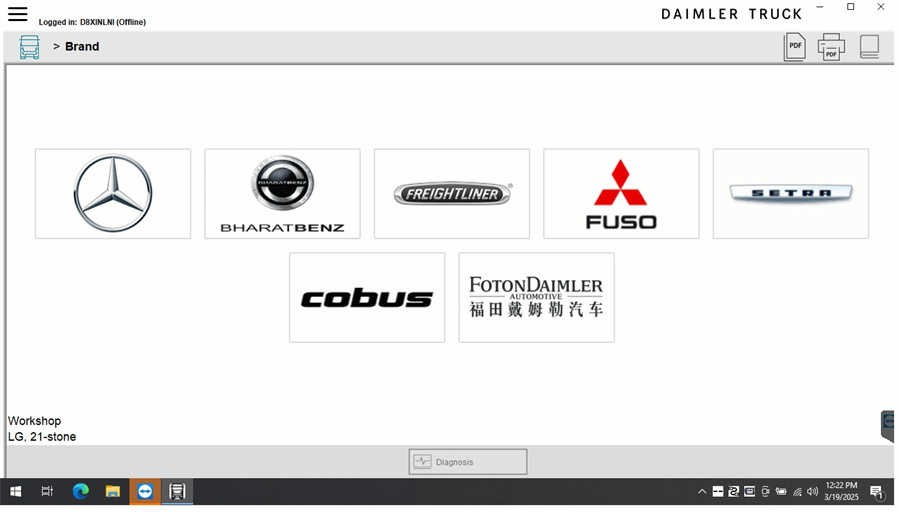 DTS Monaco ECU Programming Interface
DTS Monaco ECU Programming Interface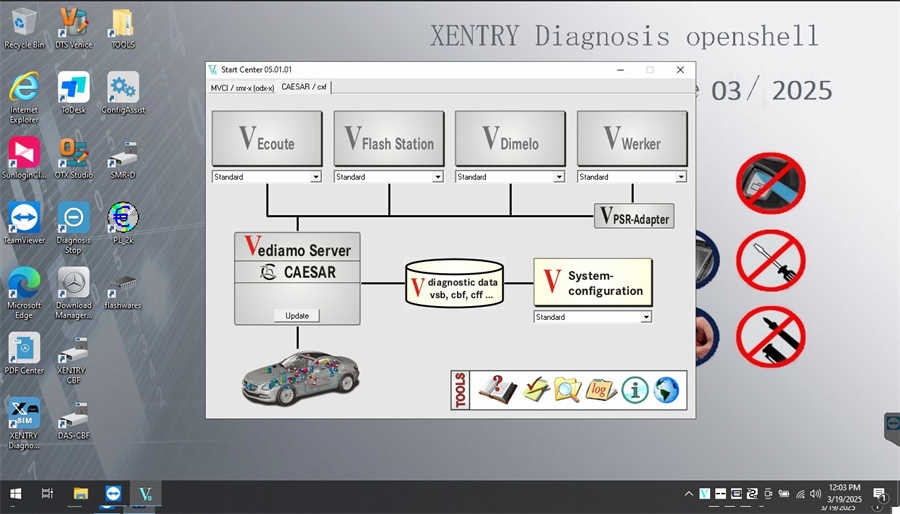 DTS Monaco Coding Options
DTS Monaco Coding Options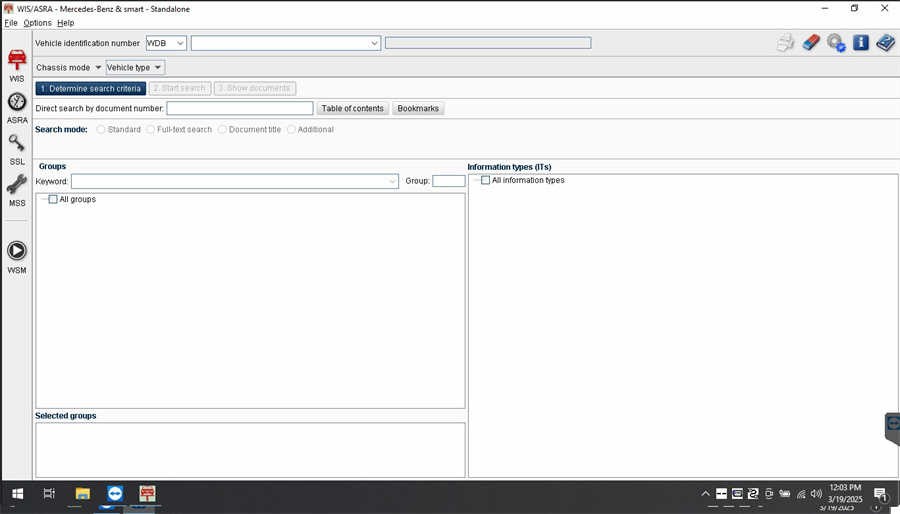 DTS Monaco Live Data Monitoring
DTS Monaco Live Data Monitoring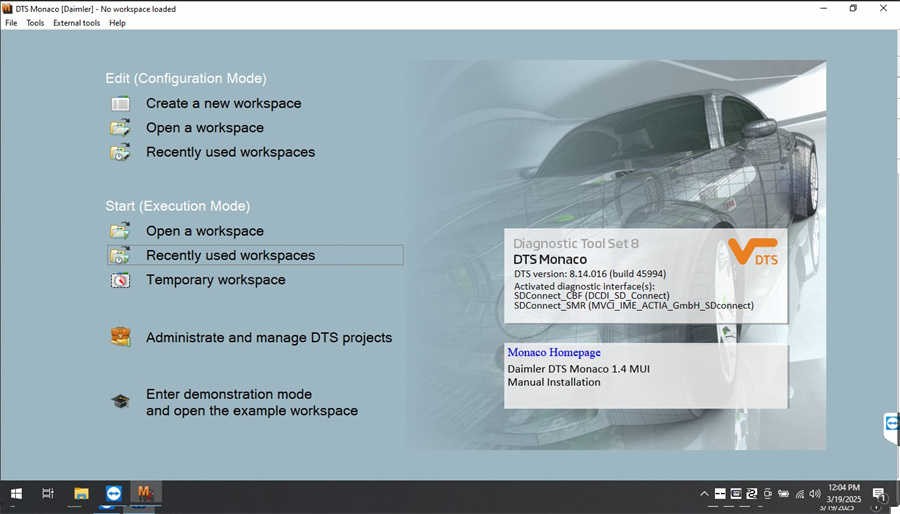 DTS Monaco Interface Connection Setup
DTS Monaco Interface Connection Setup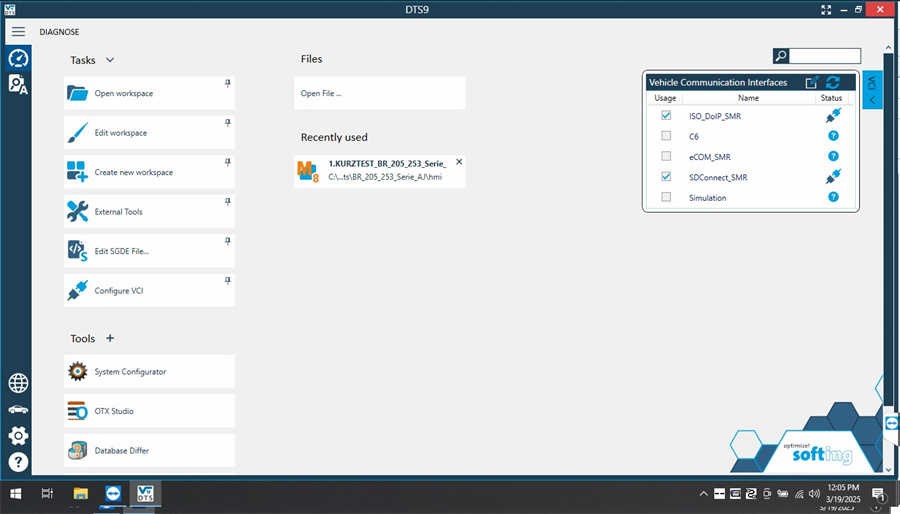 DTS Monaco Function Selection
DTS Monaco Function Selection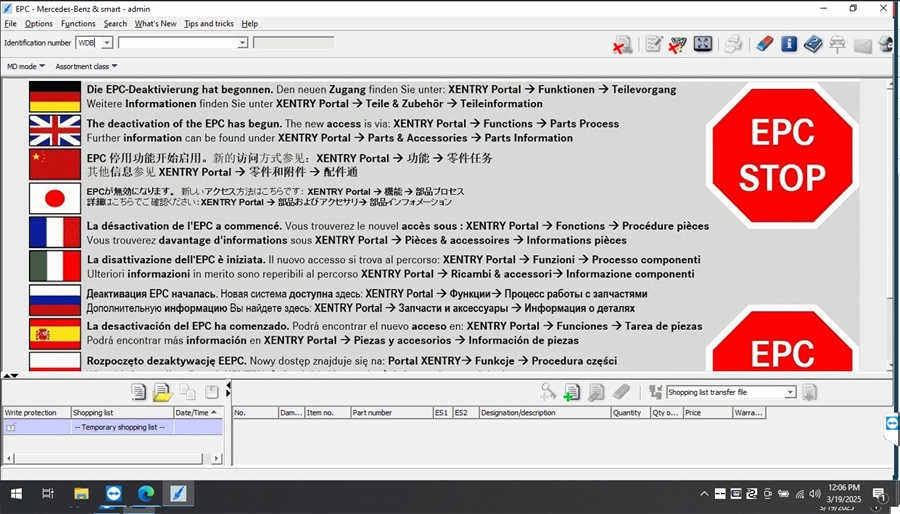 DTS Monaco Module Overview
DTS Monaco Module Overview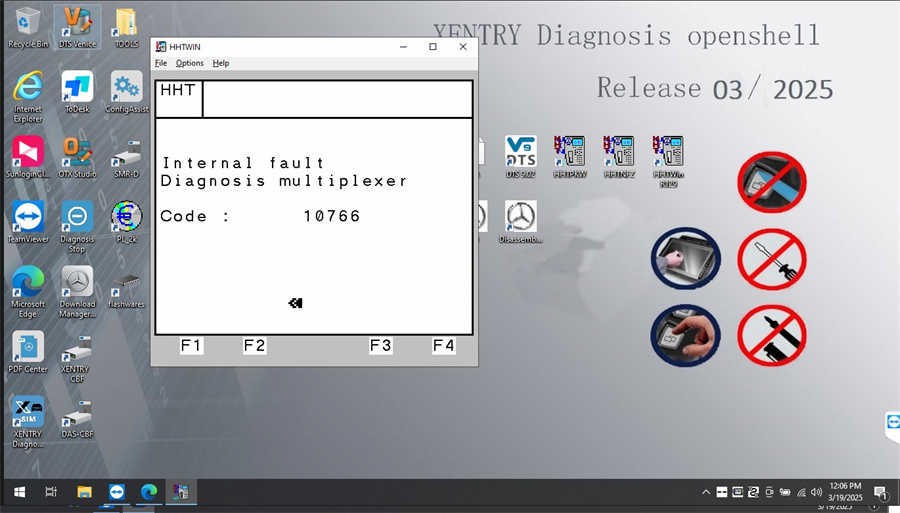 DTS Monaco System Analysis
DTS Monaco System Analysis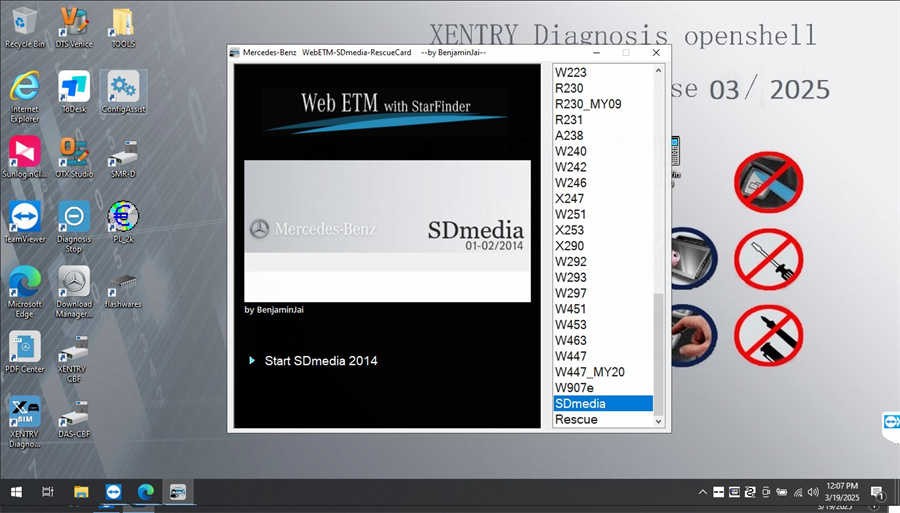 DTS Monaco Vehicle Scanning
DTS Monaco Vehicle Scanning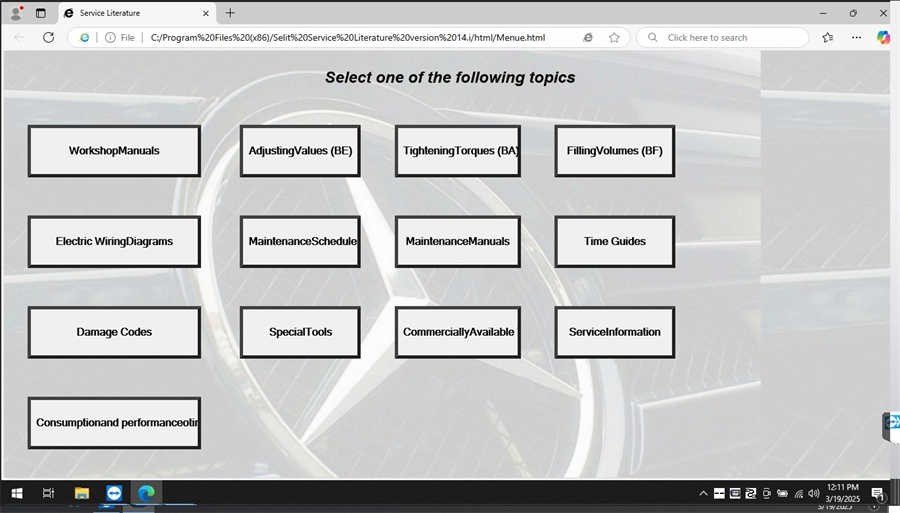 DTS Monaco Quick Test Results
DTS Monaco Quick Test Results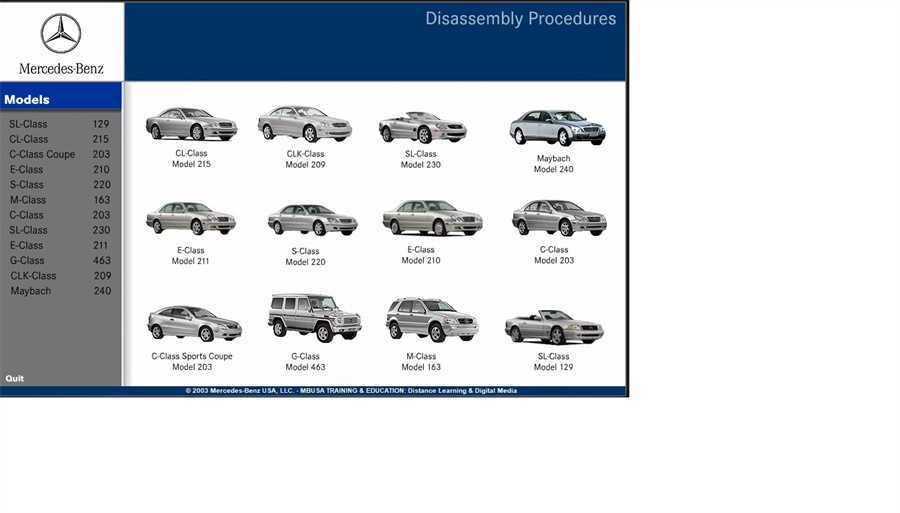 DTS Monaco Configuration Menu
DTS Monaco Configuration Menu
